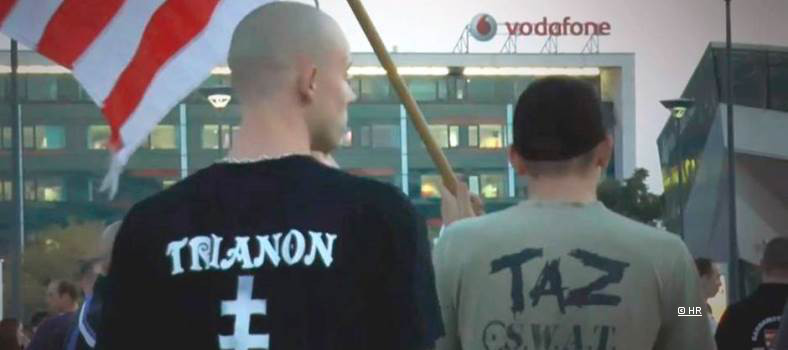The arte theme evening on 12 May is dedicated to homophobia in Europe and in Jewish, Christian and Muslim religious communities.
The results of a study by the EU Fundamental Rights Agency are shocking. According to the study, almost half of the approximately 93,000 lesbians, gays, bisexuals and trans* people (LGBT) surveyed have experienced discrimination due to their homosexuality, and one in five have even experienced physical violence.
Homophobia, the open hostility towards gays and lesbians, is anything but a marginal phenomenon, but has become a serious threat to homosexuals throughout the EU. According to the study, two thirds do not dare to hold hands in public and thus recognise themselves as homosexuals. Olivier Couderc and Wilfred de Bruijn, for example, have had to experience first-hand that this natural gesture of affection can actually be dangerous.
They were brutally beaten in the street in Paris in 2013, with one of the two men suffering extremely serious injuries. This case is just one of many examples that the TV journalist Peter Gerhardt uses in his The documentary "Same love, wrong love?!" illustrates the everyday homophobia in large parts of the EU. His film is part of the arte theme evening on homophobia on Tuesday, 12 May.
In his documentary, however, Peter Gerhardt not only lets the victims have their say, but also takes a closer look at the perpetrators and the social currents and protagonists who promote and fuel this hatred - in Eastern European countries such as Lithuania and Hungary as well as in Germany.
How homophobic various religious communities are, what pressure they exert on gay and lesbian parishioners, what consequences the rejection of their sexuality has for homosexual believers - these are the questions addressed in the equally worthwhile film Documentary "Thou shalt not be gay" to.
Gays and lesbians experience marginalisation and discrimination of various kinds across the world's religions, as Marco Giacopuzzi demonstrates with a whole series of depressing, but unfortunately by no means rare examples. For example, he tells the story of a gay Muslim and a gay Jew. Even devout gays in the Catholic Church and in Bible-believing evangelical circles are torn between their same-sex feelings, self-hatred, religious prohibitions and the fear of ostracism and hellfire. For some, the path to a "gay healer" therefore appears to be the only way out.
The importance of public discussion about LGBT rights, especially in mass media such as television, is demonstrated by arte's online site. Among other things, it offers a small dossier on the theme evening, with further interviews on the situation of homosexuals in Lithuania and homophobia in football, for example, as well as an interactive satirical page that makes coming out child's play thanks to perfect coaching.
But as soon as the programme announcement went online, the first homophobic comment was made: "Who is discriminating against whom here, who is actually intolerant? The numerous activists of moral relativism who want to dictate their ideas to the whole continent (...), or people from countries like Hungary and Lithuania who don't mix bedroom and street and hope to continue living in peace according to their beliefs? In my opinion, the answer is clear."
It is to be hoped that the author will nevertheless watch the two documentaries and perhaps be inspired to reconsider his position.

Broadcast dates:
"Same love, wrong love?": 12 May, 8.15 pm. Repeat: 19 May & 1 June, both at 8.55 pm
"Thou shalt not be gay": 12 May, 9.10 pm. Repeat: 19 May & 1 June, both at 9.50 pm









